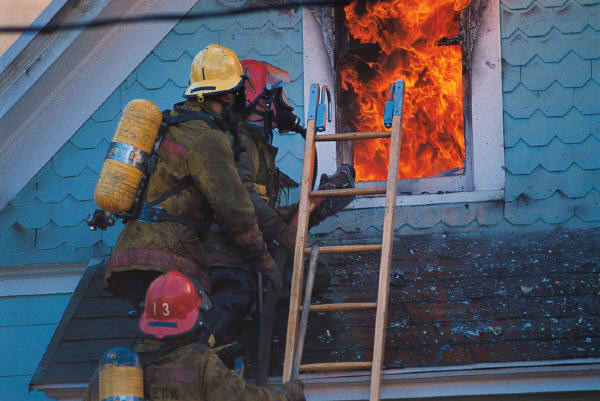

Smoke Free policies are quickly becoming the standard for multi-unit housing in the U.S.[1]
Smoke free policies do not ban a smoker from renting or make the smoker quit; they only state that a smoker cannot smoke while on the property or smoke only in designated areas.
Reasons for Smoke Free Policies:
Smoke-free policies protect residents.
 |
|
|
 |
According to the American Society of Heating, Refrigeration and Air-Conditioning Engineers (ASHRAE):
- There is no known ventilation or air cleaning system that can eliminate all the toxins from another resident’s smoke.
|
|
It is always best to try and work out a solution with your landlord. Encourage your landlord to adopt a smoke free policy for the property. (click here for steps)
If you are unable to resolve the problem by talking with your landlord then here are some other options.
 |
|
-
The Americans With Disabilities Act and the FHA state that no one can be discriminated against in workplaces, public places or in housing due to disability.
- Severe breathing problems are considered a disability. Lanlords/owners are required to provide reasonable accommodations to persons with severe breathing disabilities, including possibly making the buidling/complex totally smoke-free. (6)
- To qualify, the reaction to the SHS must substantially limit one or more major life activities. To be “substantial,” the impairment must be severe and long-term. (7)
- To file a FHA claim contact the U.S. Housing and Urban Development at http://portal.hud.gov/hudportal/HUD?src=/program_offices/fair_housing_equal_opp/complaint-process or call 1-800-669-9777
-
The landlord should take actions to prevent secondhand smoke from causing harm to tenants and affecting the enjoyment of the property. Landlords that do not take action may be liable to legal action should the tenant show they have been harmed.
Listed below are some ways non-smoking tenants can bring legal action regarding secondhand smoke against the owner, manager or other tenants under common law. (8)
|
- Breach of the covenant of quiet enjoyment - Negligence - Breach of warranty of habitability - Nuisance - Intentional infliction of emotional distress - Battery - Constructive eviction |
 |
It is legal for owners and managers to ban smoking on and in properties.
- Smoking is not a legal right. Smoke free policies do not infringe on the legal rights of individuals.(10)
 |
|
-
Owners/Landlords may not deny a person the right to live on the property because they smoke, but owners can regulate that the person not smoke on the property. (or smokes only in designated areas.)
Steps Towards Smoke Free Policies for Tenants
 |
|
-
Talk with your neighbors to find out if they are having a similar problem. Ask them to help you to address the issue and ask for smoke free policies for the building/complex.
|
 |
- Should the secondhand smoke problem not get resolved, you may refer to some of the legal options available to you in the “Tenants have rights protecting them from secondhand smoke” section of this page.
Adapted from GASP of Colorado, www.mysmokefreehousing.org
PDF version of "Steps Towards Smoke Free Policies for Tenants"
This information is for educational purposes only and is not to be construed as a legal opinion or as a substitute for obtaining legal advice from an attorney.
Additional Resources
American's for Nonsmoker’s Rights Foundation: www.no-smoke.org
Tobacco Control Legal Consortium- http://www.tclconline.org/
Infiltration of Secondhand Smoke into Condominiums, Apartments and Other Multi-Unit Dwellings
Secondhand Smoke Seepage into Multi-Unit Affordable Housing
The Americans with Disabilities Act: Effective Legal Protection Against Secondhand Smoke Exposure
GASP of Colorado, www.mysmokefreehousing.org
[1] National Center for Healthy Housing, Green & Healthy Housing, Reasons to Explore Smoke-free Housing, Early Fall 2009.
[2] http://www.usfa.dhs.gov/downloads/pdf/tfrs/v5i5.pdf U.S. Fire Administration / FEMA.
[4] http://www.ashrae.org//home
[5] http://www.usdoj.gov/crt/housing/title8.htm
[6] http://www.tobacco.neu.edu/tobacco_control/resources/ets/adainfo1.htm
[7] Susan Schoenmarklin, Tobacco Control Legal Consortium, Legal Options for Condominium Owners Exposed to Secondhand Smoke (2006).
[8] http://www.smokefreeforme.org/landlord.php?page=Your+Risks
[9http://www.tcsg.org/sfelp/kline.htm
[10] Technical Assistance Legal Center, There is No Constitutional Right to Smoke, Public Health Institute 2005
[11] U.S. Department of Housing and Urban Development, Notice H 2010-21, Issued September 15, 2010.

